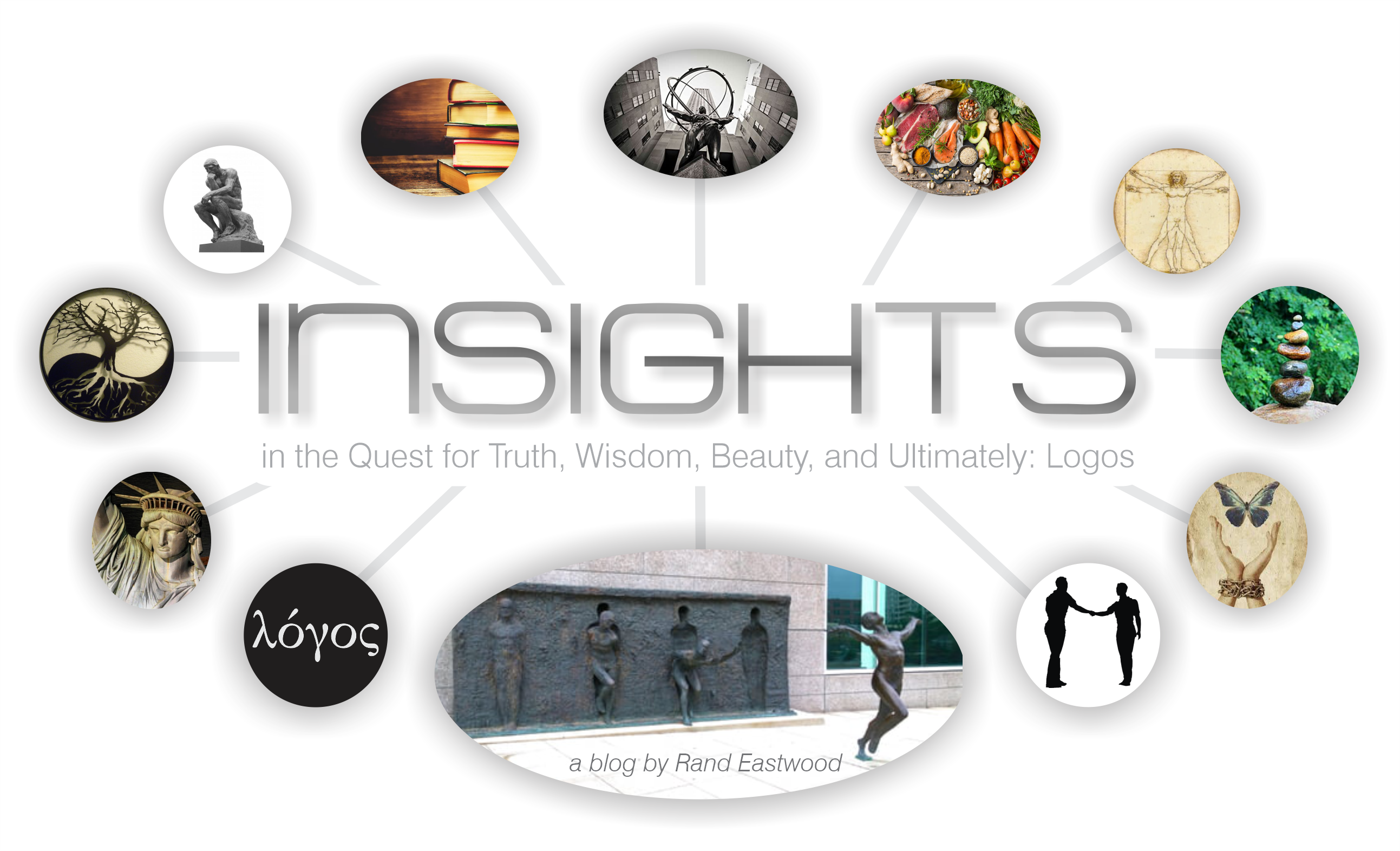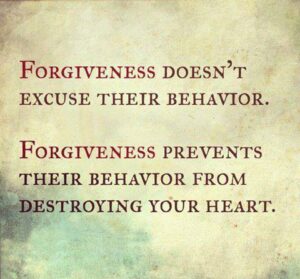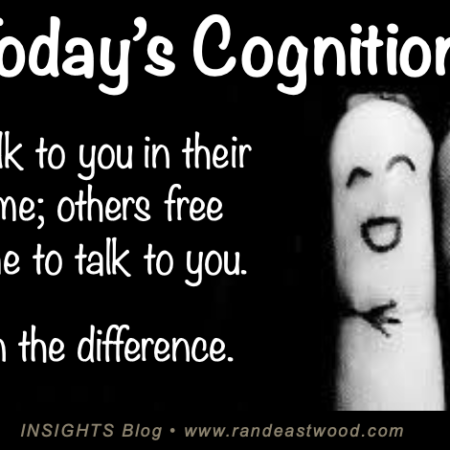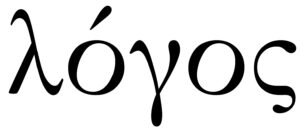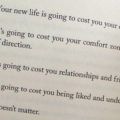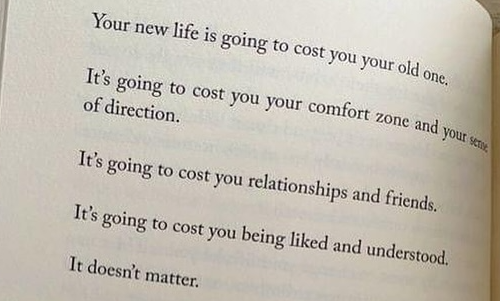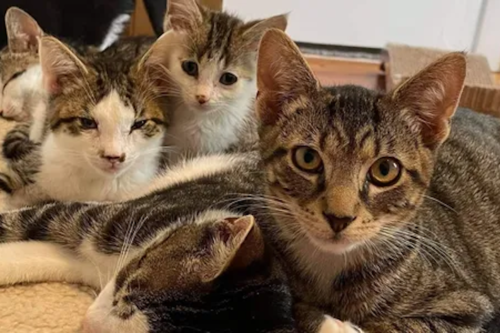NOTE: I originally wrote this article several years ago (entitled “How Do I Forgive The Unforgivable?”) and it has been one of my most popular articles. However, in my ongoing studies since, I’ve come across further insights on the subject, and have subsequently updated the original article:
Forgiving To Move Forward
There was a time in my life when I was dealing with a lot of problems, a lot of baggage from my past, and had reached a point where I really needed to let go of all of it and move forward with my life.
It’s a simple idea, to let go of the past in order to move forward. And it’s a simple idea to forgive people who have wronged you, who have hurt you, who have taken something from you that you can never get back—such as time, money, property, trust…or even your heart.
But sometimes, it can be incredibly difficult to do. In some cases, certain people from your past, and the problems, circumstances and hardships they brought about through their mean-spirited (or outright evil) actions, have hurt you so badly, even destroyed your life at the time, that you simply cannot bring yourself to forgive them.
But forgive you must—you know this—in order for you to finally let go and move forward.
But how?
I was in this very dilemma many years ago, when my entire life had crashed down around me and I was going through some therapy to try to get my head back on straight, deal with my issues, and move forward in my life, in what I hoped would be a healthier, more productive way.
For most of my issues, this was very doable.
But for one issue in particular, I found it seemingly impossible…
Certain people from my past had hurt me so badly, caused me so many problems in my life, and damaged me, my mind, and my future, to the point that my capacity for living a normal, healthy, productive life was severely handicapped, if not completely destroyed. How could I possibly forgive them for what they did to me, the repercussions of which have negatively impacted me my entire life?
Yet, I knew I had to. I would never be able to move forward, to change, to grow, to build a new life, if I dragged this issue along, unable to put it in the past where it belonged. And the only way to put it in the past was to forgive them. But how? I tried. I really did. But after extensive time and effort, I found that I simply couldn’t do it.
Finally exasperated, I turned to the Internet. I spent an entire evening searching online, hoping that some little gem of wisdom would miraculously surface, from a world of infinite possibilities, and help me do what I so desperately needed to do.
And to my surprise, it did!
What Forgiveness Is Not
Unfortunately, I did not document, nor do I recall, where I found the following helpful approach to forgiveness. And thorough online searching since has not reproduced it. So today I have no idea where it came from—perhaps it was sent to me from a divine source?—I suppose I’ll never really know. But it went something like this:
Forgiveness isn’t necessarily saying,
“You didn’t do anything wrong.”
Forgiveness isn’t necessarily saying,
“Everything is okay now.”
Forgiveness can be simply saying,
“I hereby forfeit my right to hurt you
just because you hurt me first.”
Pretty simple, huh?
So, I decided that if forgiveness can be as simple as deciding to no longer hold a grudge against someone who hurt me in the past—in other words, to no longer wish them ill will—without pretending that they are innocent of wrongdoing, or that what they did no longer matters…
…well, I decided I could do that.
Finally, a way to forgive the worst transgressors of my past…
Since then, I’ve learned that Archbishop Emertus Desmond Tutu also echoes this sentiment in The Book of Forgiving:
“…forgiving does not condone an act. Forgiveness does not relieve someone of responsibility for what they have done. Forgiveness does not erase accountability. It is not about turning a blind eye or even turning the other cheek. It is not about letting someone off the hook or saying it is okay to do something monstrous. Forgiveness is simply about understanding that every one of us is both inherently good and inherently flawed.”
And finally, in the words of Morgan Richard Olivier, from his book Blooming Bare:
“You can’t create chaos in the lives of others and expect peace to come to yours. No matter what they did or how you feel, causing hurt to others will never bring healing to you.”
Forgiving Elevates You
And not only does this understanding make difficult forgiving possible, but it is also a way of elevating yourself to a higher level of consciousness. I’ve always tried to avoid “lowering myself” to the level of those who hurt me or otherwise conduct themselves in a selfish, inconsiderate, or unacceptable manner. But if, in a sense of retaliation, I were to lower myself to their level, conduct myself as they do, how does that make me any different than them? How does that help me achieve a higher level of consciousness?
By looking at forgiveness in this same way—understanding that holding a grudge, or harboring bad thoughts and feelings, or longing for revenge, or hurtful words or behavior (or any other type of ill will directed toward others) is, in effect, conducting myself at a lower level of consciousnesses—I realized that forgiving others helps me achieve a higher level of consciousness.
Forgiving Is For Your Own Wellbeing
And it’s also crucial to understand: you forgive others, not just for their sake, but for yours.
There’s an old saying:
Forgive others, not because
they deserve forgiveness,
but because you deserve peace.
Or, to quote the comedian Lily Tomlin:
“Forgiveness means giving
up all hope for a better past.”
The fact of the matter is, if you can’t, or don’t, forgive them, then they will continue to hurt you over and over again in your mind, because you’ve never let go of it, never released it from your thoughts. You’re watching an instant replay of the hurtful incident over and over and over. Eventually, you’ve got to hit STOP, and EJECT the tape, and be done with it—or it will never end.
Desmond Tutu also writes of this in The Book of Forgiving:
“Without forgiveness, we remain tethered to the person who harmed us. We are bound with chains of bitterness, tied together, trapped. Until we can forgive the person who harmed us, that person will hold the keys to our happiness; that person will be our jailor. When we forgive, we take back control of our own fate and our feelings. We become our own liberators. We don’t forgive to help the other person. We don’t forgive for others. We forgive for ourselves. Forgiveness, in other words, is the best form of self-interest.”
And finally, lack of forgiveness can even be detrimental to our health. Consider what Florence Scovel Shinn wrote in The Game of Life and How to Play It (The Power of the Word):
“Continual criticism produces rheumatism, as critical, inharmonious thoughts cause unnatural deposits in the blood, which settle in the joints.”
“False growths are caused by jealousy, hatred, unforgiveness, fear, etc. Every disease is caused by a mind not at ease. I said once, in my class, ‘There is no use asking anyone ‘What’s the matter with you?’ we might just as well say, ‘Who’s the matter with you?’ Unforgiveness is the most prolific cause of disease. It will harden arteries or liver, and affect the eye-sight. In its train are endless ills.”
“Any inharmony on the external, indicates there is mental inharmony. ‘As the within, so the without.’ “
“Man’s only enemies are within himself. ‘And a man’s foes shall be they of his own household.’ Personality is one of the last enemies to be overcome, as this planet is taking its initiation in love. It was Christ’s message – ‘Peace on Earth, good will towards man.’ The enlightened man, therefore, endeavors to perfect himself upon his neighbor. His work is with himself, to send out goodwill and blessings to every man, and the marvelous thing is, that if one blesses a man he has no power to harm him.”
In Summary
So to reiterate: forgiveness, in those difficult or seemingly impossible cases, can be simply saying:
“I hereby forfeit my right to hurt you
just because you hurt me first.”
Understanding this helps make forgiving possible, and unconditional, even in difficult cases; and, even though at first it may be difficult to do, I’ve come to find that it gets easier with practice. And ultimately, forgiveness also helps us to achieve a higher level of consciousness.
And coming to understand all of this then enabled me to forgive those people who hurt me so badly in my past, to release the pain, the bad memories, the retaliatory thoughts and feelings, the ill will—all of those unhealthy and inhibiting preoccupations—and finally move forward and live my life.
And live I do.
ADDITIONAL RESOURCES:
Forgiving Gets Easier With Practice
Contemplation: Giving & Forgiving
Dr. Wayne Dyer: Forgiving In 15 Steps
The Forgiveness Project
The Forgiveness Foundation
Project Forgive
The Book of Forgiving
The Tutu Legacy Foundation
Subscribe to INSIGHTS Blog on Substack • Like/Follow INSIGHTS Blog on Facebook Visit Lifeology Store • Like/Follow Lifeology Store on Facebook • View Rand’s Books on Amazon
A Note To Readers: If you found this article (or any of the others, for that matter) interesting, informative, entertaining, etc., please consider subscribing to the INSIGHTS email newsletter: simply enter your email into the form below (also in the right sidebar)—or, if you prefer, just use this simple quick sign-up form. (Bonus: INSIGHTS subscribers receive a 20% discount at Lifeology Store, at checkout simply enter the discount code included in the welcome email upon subscribing!) ↓↓↓ Also, please hit the “Like” (thumbs up) button below. Thanks! ~ Rand
